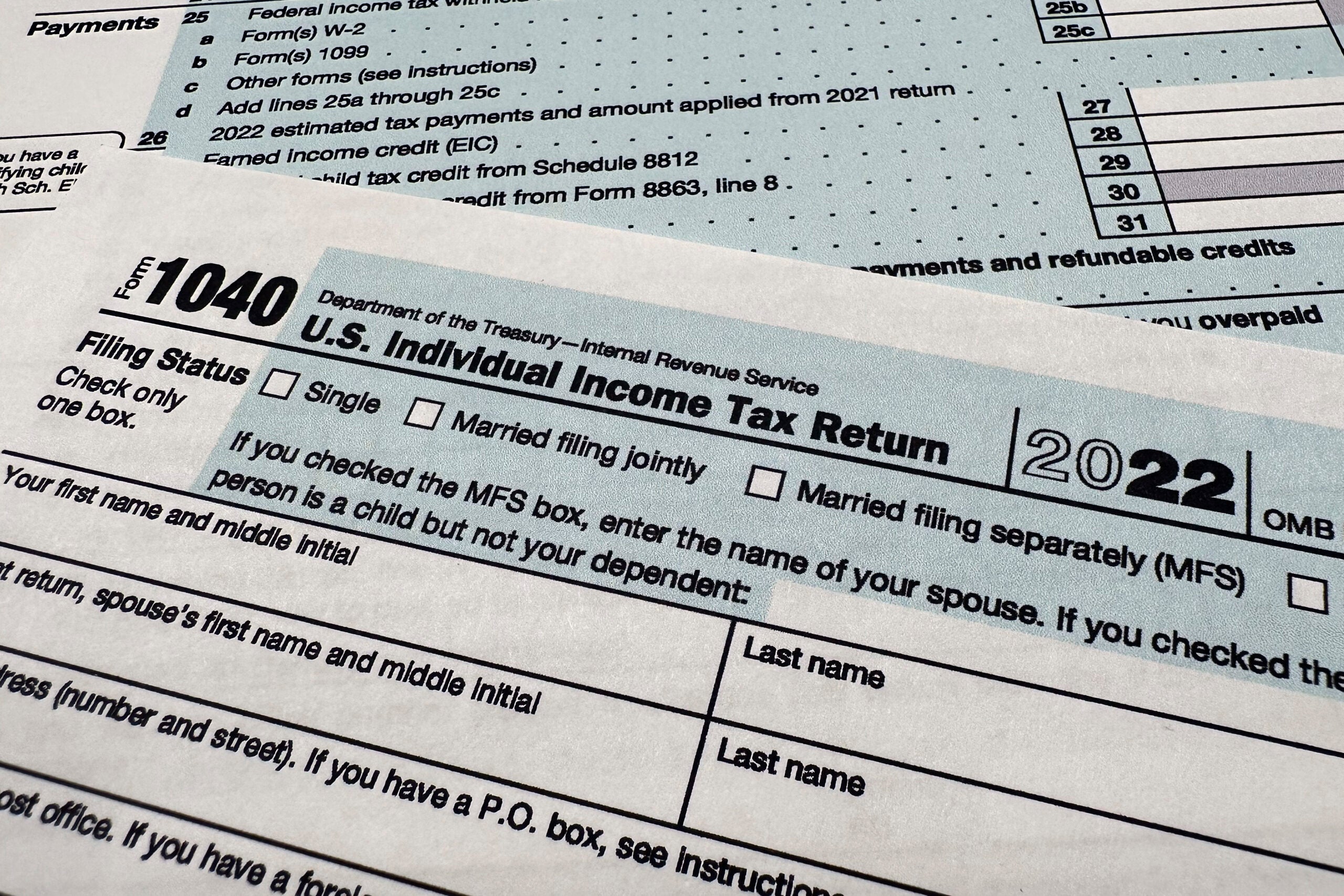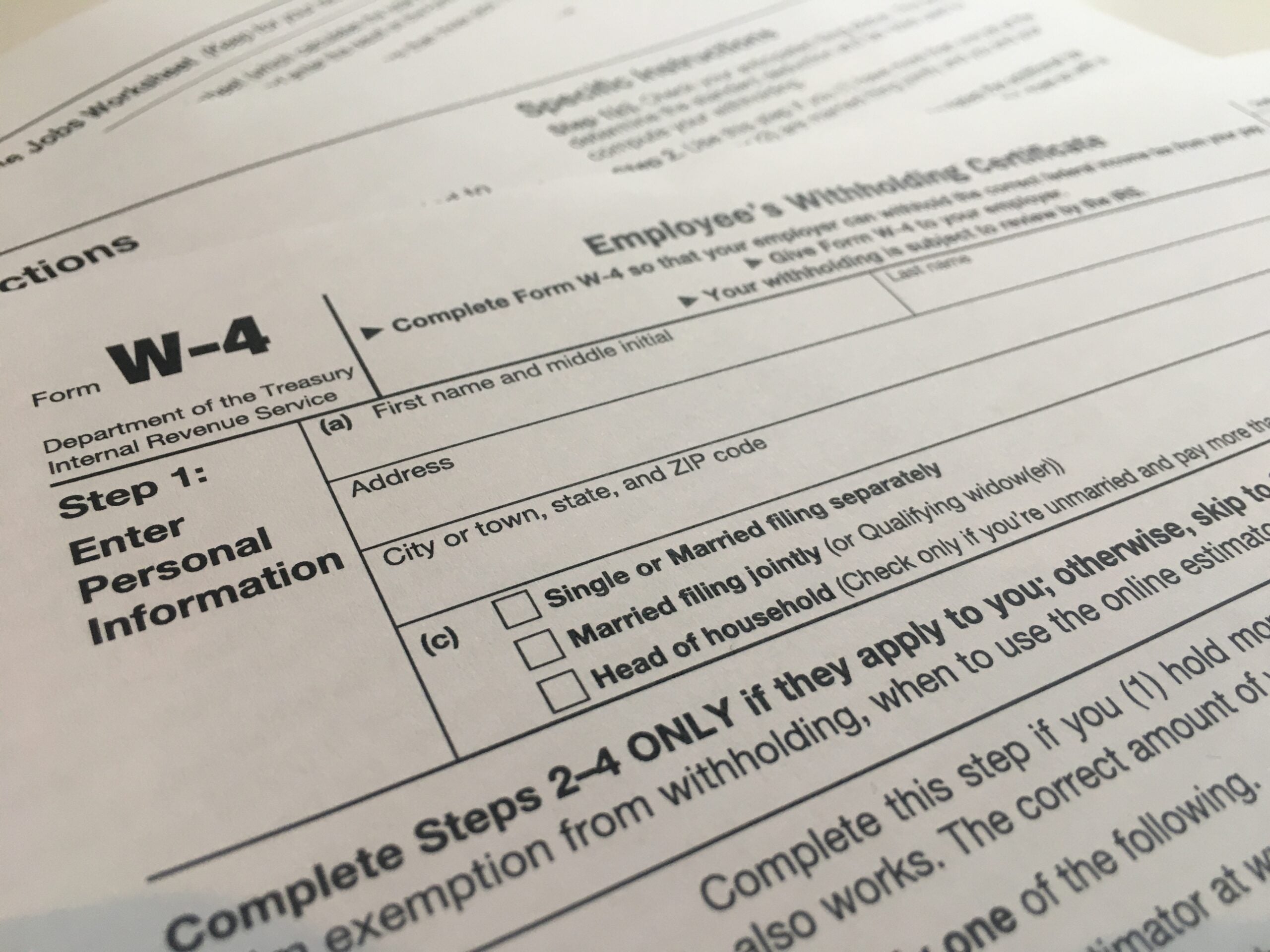The deadline for taxes is coming up quickly on July 15, and tax professional Mary Mellem is convinced there are plenty of people out there who haven’t filed, or have forgotten whether they already did.
“Ask yourself the question, ‘Did I file my tax return? Did I get my refund?’” said Mellem, who works at Ashwaubenon Tax Professionals and has been in the tax business for more than 30 years. “That’s where I would start.”
While there are several similarities in process between the typical April 15 deadline and the new July 15 deadline, there are some answers to common questions that Mellem helps explain in an interview with Kate Archer Kent on “The Morning Show.”
Stay informed on the latest news
Sign up for WPR’s email newsletter.
This interview has been edited for brevity and clarity.
What is the timeline for filing an extension?
Filing the extension is the same process that it was before, except that when you filed on April 15 for an individual, you had until Oct. 15 to file. The same deadline applies now, so you get until Oct. 15 to file. The extension form is a 4868 form for the individual.
Keep in mind that while this is an extension to file your taxes, it is not an extension to pay. If you owe money and don’t pay it by July 15, you will still have interest in penalty from July 15 until you pay that.
What are some big life changes that can complicate our tax returns?
Having a child makes a huge difference in your tax return. You have a dependent that you’d be listing, and you need a Social Security number to file the tax return with that dependent.
It does open the door to a dependent credit. For a child under the age of 17, that dependent credit is $2,000. Granted, the climate has changed now because of COVID-19, but for 2019, you could be eligible for daycare and earn income credits.
One of the first questions at the top of the tax form asks about your filing status: single, married and head of household. There are a couple of exceptions, but generally head of household is for the individual who is single but has a qualifying child who lives with them. Generally that’s someone under the age of 19, or under the age of 24 if they’re a full-time student.
The head of household gets a better tax rate than someone who files as single.
Your tax returns will change too if you’ve gotten divorced within the tax year. Wisconsin is one of nine states with community property laws that come into play in divorce situations. This means that the community income is considered equal to both people in the marriage. If you get a divorce in the middle of the year, you have to think about splitting that income.
For example, if someone gets divorced on June 30, halfway through the year, they split the income during the part of the year they were married. That amount plus the person’s income for the entire rest of the year makes up their tax return.
People who are single on the last day of the tax year will file either as single or head of household. If you’re married on the last day of the year, even if you’re in the process of getting divorced, you can’t file single, and you generally can’t file head of household.
Retirement is another big change. Social Security is one of those things that can be received by people who retire. People can start their Social Security as early as age 62 for early retirement.
When someone receives Social Security, it is not necessarily nontaxable. Depending on your income level, it might be up to 50 percent taxable. If you have a higher income level, it could be as much as 85 percent taxable. People have to remember that Social Security comes into the mix of deciding whether it’s a taxable issue or not.
I filed my taxes and still haven’t received my return. What should I do?
If you filed electronically, I would recommend calling the IRS. You’ll have to be patient, because it will take more time now because the IRS isn’t staffed like it would be normally because of the COVID-19 pandemic.
It could be that at the point in the year when you filed, the processing got caught up in the chaos of people who were out of the offices. Also, in this age, there’s a chance that the IRS is concerned about identity theft. If so, they may send you a letter asking you to prove your identity.
Call and ask them about the refund just to make sure that there isn’t some hold-up that you could help by giving them answers.
If you filed a paper return and still haven’t received anything, you may just have to wait a little longer. The paper returns that had been filed by mail when the IRS shut down were stockpiled in trailers. Now that the IRS is back to work on some level, they’re starting to unpack those.
Wisconsin Public Radio, © Copyright 2025, Board of Regents of the University of Wisconsin System and Wisconsin Educational Communications Board.


